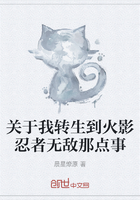From first to last, and in the face of smarting disillusions, we continue to expect good fortune, better health, and better conduct; and that so confidently, that we judge it needless to deserve them.I think it improbable that I shall ever write like Shakespeare, conduct an army like Hannibal, or distinguish myself like Marcus Aurelius in the paths of virtue; and yet I have my by-days, hope prompting, when I am very ready to believe that I shall combine all these various excellences in my own person, and go marching down to posterity with divine honours.There is nothing so monstrous but we can believe it of ourselves.About ourselves, about our aspirations and delinquencies, we have dwelt by choice in a delicious vagueness from our boyhood up.No one will have forgotten Tom Sawyer's aspiration: "Ah, if he could only die TEMPORARILY!" Or, perhaps, better still, the inward resolution of the two pirates, that "so long as they remained in that business, their piracies should not again be sullied with the crime of stealing." Here we recognise the thoughts of our boyhood; and our boyhood ceased - well, when? - not, Ithink, at twenty; nor, perhaps, altogether at twenty-five; nor yet at thirty; and possibly, to be quite frank, we are still in the thick of that arcadian period.For as the race of man, after centuries of civilisation, still keeps some traits of their barbarian fathers, so man the individual is not altogether quit of youth, when he is already old and honoured, and Lord Chancellor of England.We advance in years somewhat in the manner of an invading army in a barren land; the age that we have reached, as the phrase goes, we but hold with an outpost, and still keep open our communications with the extreme rear and first beginnings of the march.There is our true base; that is not only the beginning, but the perennial spring of our faculties; and grandfather William can retire upon occasion into the green enchanted forest of his boyhood.
The unfading boyishness of hope and its vigorous irrationality are nowhere better displayed than in questions of conduct.There is a character in the PILGRIM'S PROGRESS, one Mr.LINGER-AFTER-LUST with whom I fancy we are all on speaking terms; one famous among the famous for ingenuity of hope up to and beyond the moment of defeat; one who, after eighty years of contrary experience, will believe it possible to continue in the business of piracy and yet avoid the guilt of theft.Every sin is our last; every 1st of January a remarkable turning-point in our career.Any overt act, above all, is felt to be alchemic in its power to change.Adrunkard takes the pledge; it will be strange if that does not help him.For how many years did Mr.Pepys continue to make and break his little vows? And yet I have not heard that he was discouraged in the end.By such steps we think to fix a momentary resolution; as a timid fellow hies him to the dentist's while the tooth is stinging.
But, alas, by planting a stake at the top of flood, you can neither prevent nor delay the inevitable ebb.There is no hocus-pocus in morality; and even the "sanctimonious ceremony"of marriage leaves the man unchanged.This is a hard saying, and has an air of paradox.For there is something in marriage so natural and inviting, that the step has an air of great simplicity and ease; it offers to bury for ever many aching preoccupations; it is to afford us unfailing and familiar company through life; it opens up a smiling prospect of the blest and passive kind of love, rather than the blessing and active; it is approached not only through the delights of courtship, but by a public performance and repeated legal signatures.A man naturally thinks it will go hard with him if he cannot be good and fortunate and happy within such august circumvallations.
And yet there is probably no other act in a man's life so hot-headed and foolhardy as this one of marriage.For years, let us suppose, you have been ****** the most indifferent business of your career.Your experience has not, we may dare to say, been more encouraging than Paul's or Horace's; like them, you have seen and desired the good that you were not able to accomplish; like them, you have done the evil that you loathed.You have waked at night in a hot or a cold sweat, according to your habit of body, remembering with dismal surprise, your own unpardonable acts and sayings.You have been sometimes tempted to withdraw entirely from this game of life; as a man who makes nothing but misses withdraws from that less dangerous one of billiards.You have fallen back upon the thought that you yourself most sharply smarted for your misdemeanours, or, in the old, plaintive phrase, that you were nobody's enemy but your own.And then you have been made aware of what was beautiful and amiable, wise and kind, in the other part of your behaviour; and it seemed as if nothing could reconcile the contradiction, as indeed nothing can.If you are a man, you have shut your mouth hard and said nothing;and if you are only a man in the ******, you have recognised that yours was quite a special case, and you yourself not guilty of your own pestiferous career.














